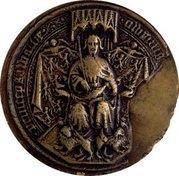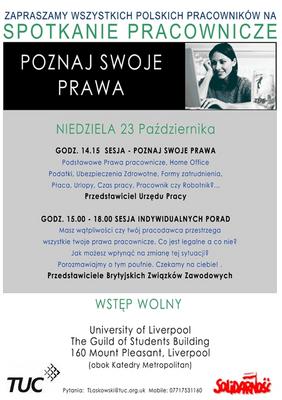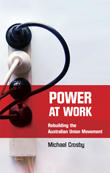Things were different back then...Sorry, going to have to cut and paste a load of text for this next article as its not available as a link.
Bert Clough is a fellow TUC staffer (though he's more of a proper clever policy wonk than me) - and this is a great article he did for our staff intranet on his first Labour Party Conference back in 1974...
Bert Clough recalls his first Labour Party Conference1974 and all that
As the Party Conference season ends my memory takes me back to the first Labour Party conference I attended. It was in 1974 and held not in Brighton but at Methodist Central Hall in Westminster. Labour had just won the second election that year and managed to get a slim working majority. I had been arm-twisted into becoming the parliamentary agent in true blue Petersfield in deepest Hampshire. My reward for not losing our deposit was to be the conference delegate.
Unlike this year’s conference there was an atmosphere of great elation thirty one years ago even though Labour only won by 4 seats compared with the 64 this year. Mind you Party membership was three times the number it is today and Labour’s share of vote was larger than it is now.
There were other differences as well. The word “socialism” peppered all the major speeches, even Harold Wilson’s. Delegates were addressed as “comrades” by the platform. The Foreign Secretary Jim Callaghan chaired the conference in his usual avuncular way. There was certainly no control freakery. Well known Militants and fellow travellers such as Ted Knight, Ray Apps, Ken Coates, Tony Saunios were called by Jim as a matter of course to speak in debates. There was no need to eject any hecklers from the gallery since most of the speeches from the floor were one long heckle.
Looking back, what was strange was that so few MPs and even Cabinet Ministers were allowed to speak. You had to be an NEC member like Ian Mikado or Judith Hart to have that right. There were however actual open debates on issues such as Planning Agreements, the Social Contract, the Common Market, Clay Cross and, of course, Chile. Jack Jones made an impassioned speech against loans to Pinochet. Above all the atmosphere was a heady mix of invective, wit and nostalgia - nowadays sadly supplanted by scripted blandness.
Jim spoke of the need for “radical and socialist change” but warned that “such measures must be relevant measures”. Jim, who was always close to the unions, thanked them for their “deep generosity”. When was the last time we heard these sentiments from a Cabinet Minister– Ian Mc Cartney excepted?
Perhaps the greatest impression the Conference left on me was the speech of the fraternal delegate from the SPD, none other that the German Chancellor, Helmut Schmidt (pictured below). It was a masterly speech made at a difficult time. Against the advice of the NEC, the Conference had just carried a hostile resolution obviously drafted by the Common Market Safeguards Committee. There was strong union opposition to the Common Market. The motion insisted on the right to reject all EEC directives, to control the movement of labour and to bring any firm into public ownership. Other than the last “safeguard”, it could have been drafted by today’s UKIP.
Schmidt responded with great diplomacy and eloquence -“with regard to your vote yesterday, I cannot totally avoid putting myself in the position of a man who wants to convince members of the Salvation Army of the advantages of drinking….but we comrades on the continent want you to stay in”.
There seemed to incredible warmth and comradeship between Wilson and Schmidt, with mutual congratulation on their election success. How different to the recent relationship between Blair and Schroeder.
Harold Wilson wisely did not mention Europe in his speech. Instead, he concentrated on economic and industrial policy. It was packed full of policy ideas for intervening in the economy. He also warned that if the big battalions on both sides of industry try to get an unfair advantage, it could break the Social Contract and that union officers needed to convince their members of the need for “a fair sharing of sacrifices”. Harold’s speech also included that famous phrase that was to haunt the Party in the wilderness years in the 1980s and 90s, that Labour now was “the natural party of government”. But he also spoke of the need for Labour to be a party of protest in government as well as in opposition – a concept which would bemuse New Labour spin doctors and policy wonks.
A legendary figure that spoke at the conference was George Hodgkinson who was presented with a long service award. George had been a Party member for 61 years, a Party Agent for 35 years and city councillor for 41 years. As Mayor of Coventry, he was the driving force that rebuilt the city after it was devastated in the Blitz. George recalled the conference in 1926 which he attended – the year of course of the General Strike. The chair of the conference proclaimed that he wanted to see “the Red Flag flying over that tied cottage at the end of the Mall”. Although almost fifty years later, the 1974 conference still did not see the Red Flag run up the Buckingham Palace flagpole we all ended in us singing it.
Labour Party Conferences in those days were pure theatre even though some of the proceedings seemed like the Theatre of the Absurd. The experience of that Conference however inspired me to join the Labour Party’s Research Department and to fight the socialist cause in Petersfield at the 1979 general election and the rest as they say is history …..or in my case a footnote in history.




 As the Party Conference season ends my memory takes me back to the first Labour Party conference I attended. It was in 1974 and held not in Brighton but at Methodist Central Hall in Westminster. Labour had just won the second election that year and managed to get a slim working majority. I had been arm-twisted into becoming the parliamentary agent in true blue Petersfield in deepest Hampshire. My reward for not losing our deposit was to be the conference delegate.
As the Party Conference season ends my memory takes me back to the first Labour Party conference I attended. It was in 1974 and held not in Brighton but at Methodist Central Hall in Westminster. Labour had just won the second election that year and managed to get a slim working majority. I had been arm-twisted into becoming the parliamentary agent in true blue Petersfield in deepest Hampshire. My reward for not losing our deposit was to be the conference delegate.